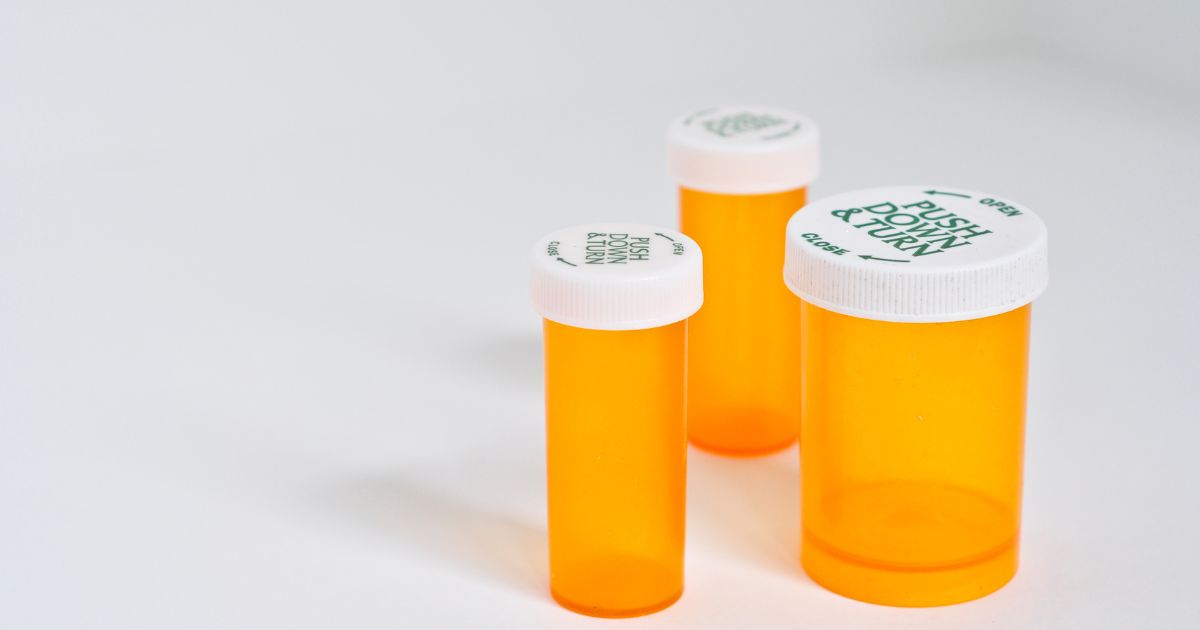Drug addiction is a serious problem in our society. The more you understand about drug abuse, the better equipped you are to help yourself or a loved one. If you’re wondering if cocaine is a stimulant or depressant, we have the answers you need.
Cocaine is a powerful stimulant derived from the leaves of the coca plant native to South America. It’s a very popular illegal drug due to the sense of euphoria and increased energy people feel when consuming it. These aspects of cocaine also make it very addictive.
Cocaine has a myriad of slang terms or street names. Some of these include:
- Snow
- Coke
- Blow
- White
- Powder
- Dust
- Rock (for crack cocaine)
- Flake
- Nose candy
- Charlie
- Yayo
- Rail
Note: An “8 ball” typically refers to an eighth of an ounce (around 3.5 grams) of cocaine, but this term can be used for other drugs measured in the same quantity.
Historically, native South Americans have been chewing coca leaves for thousands of years for their stimulant effects. Cocaine was first isolated from coca leaves in the mid-19th century.
During the late 19th and early 20th centuries, it was used in tonics, patent medicines, and even in Coca-Cola. However, its addictive and harmful effects were soon recognized, leading to restrictions and bans on its use in most countries.
In popular culture, cocaine has often been associated with affluent or “party” lifestyles, largely due to its high cost. It’s also been widely associated with crime, featuring heavily in movies like Scarface, TV shows like Miami Vice , and musical genres such as hip-hop.
Due to its high potential for abuse, Cocaine is classified as a Schedule II drug under the Controlled Substances Act.
Is Cocaine a Stimulant or Depressant?
Cocaine is a stimulant. Stimulants are a class of drugs that enhance brain activity. They are also known as “uppers” because they can make a person feel euphoric, energized, mentally alert, and physically active.
Here is what stimulants do to the body:
- Increased heart rate and blood pressure — One of the primary physical effects of stimulants is an increased heart rate and blood pressure. This happens because stimulants trigger the release of adrenaline, a hormone that prepares your body for “fight or flight.”
- Boosted mood and increased energy — Stimulants increase the amount of dopamine (the “feel good” neurotransmitter) and norepinephrine in the brain. This leads to feelings of euphoria, increased energy, and mental alertness.
- Decreased appetite — Many stimulants, including cocaine, can decrease appetite. This is why some people misuse stimulant medications intended for attention deficit hyperactivity disorder (ADHD) as weight loss aids.
- Insomnia — Stimulants can make it difficult to sleep. This is because they increase brain activity and can make the mind feel alert even when the body is tired.
- Increased body temperature — Stimulants can also raise body temperature, potentially leading to harmful overheating in some situations.
Long-term use of stimulants can lead to addiction, mental health problems like anxiety and depression, heart issues, and other serious health problems. The misuse of stimulants, including cocaine, is a significant public health issue worldwide.
If you or a loved one is suffering from cocaine addiction, please seek professional treatment.
Can Cocaine Kill You?
Yes, cocaine can be lethal. It’s a powerful stimulant drug that affects the nervous system.
Its use can lead to several severe health complications, including death, for several reasons:
Overdose — Consuming too much cocaine can cause an overdose, leading to heart attack, stroke, or seizure, all of which can result in death.
Cardiovascular effects — Cocaine use increases heart rate and blood pressure, which can cause damage to the heart and blood vessels. This can result in a heart attack or stroke, even in otherwise healthy individuals.
Respiratory failure — High doses of cocaine can cause the muscles controlling breathing to seize, resulting in respiratory failure.
Allergic reaction — Some people may have a severe allergic reaction to cocaine, which can be deadly.
Impure cocaine — Cocaine is often “cut” with other substances, some of which can be harmful or deadly. Fentanyl, a potent opioid, is one such substance that is sometimes mixed with cocaine, significantly increasing the risk of overdose and death.
Long-term health effects — Chronic cocaine use can cause significant damage to many parts of the body, including the heart, lungs, brain, and liver, which can ultimately lead to death.
It’s also important to note that cocaine use can contribute to risky behaviors, such as unsafe sex, reckless driving, or aggressive behavior, which can indirectly increase the risk of death.
Cocaine and Other Substances
Mixing cocaine with other substances can dramatically raise your risk of death above that of using either substance on its own. For example, mixing Xanax and cocaine dramatically raises the risk of an overdose because Xanax is a depressant.
This is because Xanax was designed to alleviate symptoms like fast heart rate, trembling, sweating, and high body temperature – all the tell-tale signs of a cocaine overdose.
As a result, someone who has ingested a deadly amount of cocaine while also taking Xanax may not be aware of the danger they are in. Thus, mixing Xanax and cocaine could be lethal.
What are the Signs of Cocaine Addiction?
Cocaine is a highly addictive stimulant that can cause serious health issues. Addiction can be both psychological and physical. A person might not exhibit all these signs but still have a serious problem.
Here are some potential signs of cocaine addiction:
Behavioral symptoms of cocaine addiction:
- Increased energy and overconfidence
- Decreased need for sleep and reduced appetite
- Extreme mood swings: euphoria, followed by a crash into depression or fatigue
- Loss of interest in activities or people they once enjoyed
- Being secretive, dishonest, or defensive about activities
- Sudden and unexplained financial problems
- Engaging in risky behavior, such as unsafe sex or driving under the influence
- Legal issues related to drug use
- Failed attempts to cut down or stop using cocaine
- Prioritizing cocaine use over personal responsibilities
- Obsession with obtaining and using cocaine
Physical symptoms of cocaine addiction:
- Frequent nosebleeds (if snorting cocaine)
- Track marks on arms (if injecting)
- Weight loss due to decreased appetite
- Dilated pupils
- Runny nose or frequent sniffing
- Increased heart rate and blood pressure
- Trouble sleeping
- Insomnia followed by oversleeping
Psychological symptoms of cocaine addiction:
- Paranoia or increased anxiety
- Irritability and restlessness
- Hallucinations, delusions, or psychosis (in severe cases)
- Sensitivity to light, sound, and touch
- Difficulty concentrating or memory issues
These symptoms can vary between individuals and with the frequency and amount of cocaine use.
Long-term use of cocaine can lead to more severe health problems, such as cardiovascular disease, stroke, and severe mental health issues, among others.
If you or someone you know is showing signs of cocaine addiction, it’s important to seek treatment. Always remember that it’s never too late to seek help and that recovery is possible.
Get confidential help from our addiction treatment specialists in Orange County. Call to join our rehab program today!
Call 866-881-1184Addiction Treatment at South Coast Behavioral Health
If you or a loved one are seeking cocaine addiction treatment, South Coast Behavioral Health is here to help. Treatment for substance abuse takes place along an entire spectrum of care. Along that entire spectrum are various behavioral therapies, support groups, and the use of medically-assisted treatment (MAT).
These levels of treatment are, in order, as follows:
Medical Detox in California
The first step in treating a stimulant addiction is a medical detox. This means using drugs to manage withdrawal symptoms.
Our medical detox program in California is staffed by caring and compassionate professionals who can provide you with medications to manage your withdrawal symptoms.
At South Coast, we take pride in offering care that is closely tailored to specific issues. To that end, we offer gender-specific detox programs, with medical detox for men in Irvine, CA, and medical detox for women in Huntington Beach, CA.
After detoxing, proper treatment can begin.
Residential Treatment in California
After completing medical detox, you’ll move to inpatient treatment in Orange County, California. There, you’ll receive medically-assisted treatment and dual diagnosis treatment to deal with any cravings or co-occurring mental health issues you may be battling. We also offer residential treatment facilities in Costa Mesa, Irvine, and Huntington Beach for those who desire gender-specific treatment. There, patients get round-the-clock medical attention and monitoring while living at the rehab center full-time.
In addition to individual and group counseling and medication management, you’ll also have access to leisure activities and family support services.
Partial Hospitalization in California
Most clients start substance abuse treatment with South Coast in our residential treatment program. After completing that, many desire something that still provides structure and support, but with extra space and time to oneself. For that, we offer Partial Hospitalization in Newport Beach.
A step down from inpatient care but with more structure than conventional outpatient programs, partial hospitalization offers a good balance for those looking to ease back into normal life. Clients can receive care five to seven days a week for several hours each day, returning to their sober living homes in the evening.
This way, they can recover without putting their daily lives completely on hold, receiving intense therapeutic interventions like group and individual therapy, skills development, and medication management as necessary.
Intensive Outpatient Treatment in California
For those leaving inpatient residential treatment or partial hospitalization, intensive outpatient programs (IOP) are yet another gradual step forward on the road to recovery.
With a focus on group therapy, individual counseling, and education, clients undergoing Intensive Outpatient Treatment in Newport Beach can meet three to five days a week. Each session lasts three hours.
This level of care requires the least amount of attendance at a facility.
Get Started Today
If you or a loved one are struggling with cocaine addiction but wonder how long addiction treatment takes or have other questions, call us at 866-881-1184. Our highly qualified staff will be happy to help give you an idea of what to expect from your addiction recovery timeline, help verify your insurance, and assist with any other questions you may have.










